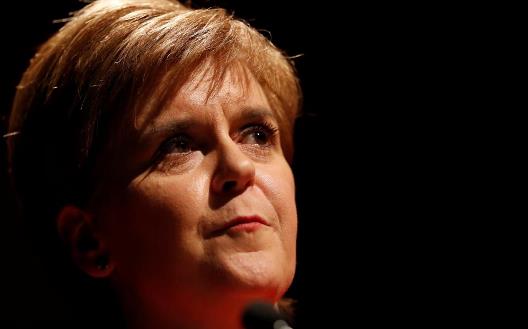15 May 2017
Tories dominate as minor parties tumble
The Conservative Party have dominated election media coverage in the first week of the campaign, with all the minor parties seeing a significant drop in headlines.
In the first of four reports by Loughborough University analysing media coverage of the General Election, the SNP and UKIP were the parties who lost greatest ground in comparison with their national media exposure in the same period of the 2015 campaign.
The two main party leaders were the most dominant figures in coverage by a considerable margin. The appearance of Phillip May, the Prime Minister’s husband, on BBC1 entertainment programme The One Show, propelled him to become the 5th most prominent political personality reported in the first week’s coverage. The full top ten for week one is:
|
1 |
Theresa May (Cons) |
32.4% |
|
|
2 |
Jeremy Corbyn (Lab) |
21.4% |
|
|
3 |
Tim Farron (Lib Dem) |
6.4% |
|
|
4 |
John McDonnell (Lab) |
6.1% |
|
|
5 |
Philip May (Cons) |
4.3% |
|
|
6 |
Donald Tusk (EU) |
2.9% |
|
|
7 |
Paul Nuttall (UKIP) |
2.6% |
|
|
8 |
Nicola Sturgeon (SNP) |
2.6% |
|
|
9 |
Jeremy Hunt (Cons) |
2.3% |
|
|
10 |
Amber Rudd (Cons) |
2.3% |
Report co-author Professor David Deacon said: “The new era of multi-party politics seems to have stalled. It is striking how marginal the SNP, UKIP and the Lib Dems have been in the 2017 media election so far, compared to the same stage in 2015.
“We can only speculate on the reasons for this. The decision not to repeat the televised leaders debates of the 2015 campaign alongside changes in the regulation of broadcast coverage of parties may have combined to elbow the minor parties out of the national media debate.”
Results in the report are derived from detailed content analysis of weekday news coverage of the General Election, compiled by experts in Loughborough University’s Centre for Research in Communication and Culture (CRCC).
This week’s report also revealed:
- Brexit is the issue that has dominated the media campaign in this initial period. The next most prominent substantive issues were the economy and business. Health and education have thus far been marginalised.
- The side-lining of the nationalist parties seems to have also limited discussion of devolution and related matters.
- Despite the prominence of Brexit, coverage of immigration, which was a touchstone of the 2016 EU Referendum campaign, was comparatively limited in the first week of the campaign.















